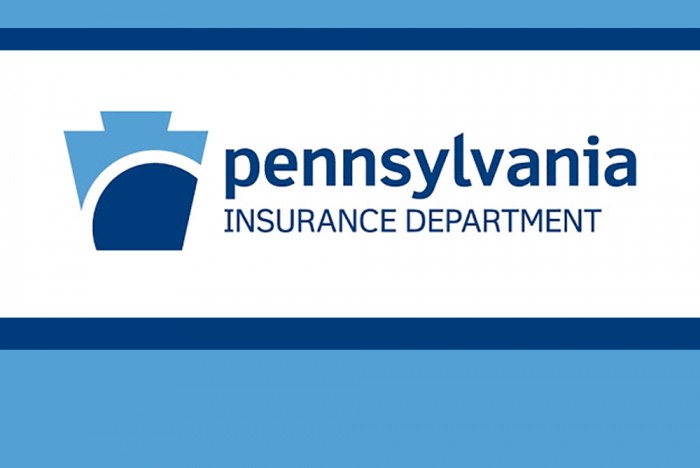Jack Phillips
House Republican Caucus Elects Leadership for 2021-2022 Session
On Tuesday, the Pennsylvania House Republican Caucus elected its legislative leaders for the 2021-2022 Legislative Session.
The Republican Leadership Team Consists of:
- Speaker-Designee Bryan Cutler (R-Lancaster);
- Majority Leader Kerry Benninghoff (R-Centre/Mifflin);
- Majority Whip Donna Oberlander (R-Clarion/Armstrong/Forest);
- Majority Appropriations Committee Chairman Stan Saylor (R-York);
- Majority Policy Committee Chairman Marty Causer (R-Cameron/McKean/Potter);
- Majority Caucus Chairman Mike Reese (R-Westmoreland/Somerset);
- Majority Caucus Secretary Martina White (R-Philadelphia); and
- Majority Caucus Administrator Kurt Masser (R-Northumberland/Columbia/Montour).
When the House reconvenes for the 2021-2022 legislative session, the Republicans will hold at least a 113-90 majority.
The State Senate will be convening today to elect their leadership for the 2021-2022 Legislative Session. In the State Senate, one state senate race is still to be determined.
Study Eyes Use of Closed PA State Hospitals as Drug Treatment Centers
By Robert Swift, Staff Writer, Capitolwire
HARRISBURG (Nov. 11) – Closed or downsized state hospitals, prisons, and centers for the intellectually disabled could potentially find new use as drug treatment centers according to a recent state legislative study.
The study by the Joint State Government Commission identifies more than 40 vacant state-owned sites across Pennsylvania.
The study was conducted amidst the backdrop of an ongoing opioid epidemic that led to 4,415 drug overdose deaths in 2018 and counts more than 287,000 Pennsylvanians struggling with a substance abuse (including alcohol) disorder.
The COVID-19 pandemic has created challenges for drug treatment providers who are trying to secure protective equipment, provide quarantine space, and practice social distancing in crowded shelters.
The places considered the “most suitable for use as drug treatment facilities are on the campuses of recently closed or unused buildings at still operational state hospitals, “ the commission study said.
Six state hospitals fall into this category. They are located at Clarks Summit, Lackawanna County; Wernersville, Berks County; Danville, Montour County; Torrance, Westmoreland County; Warren in Warren County; and Norristown in Montgomery County.
Clarks Summit has two vacant structures; Wernersville has three; Danville has eleven; Torrance has four; Warren has one, which is an unused greenhouse; and Norristown has eight.
“The primary advantage of repurposing state hospitals is that they are already located in areas ideally suited to provide medical care,” the study said.
Norristown State Hospital is cited as an example where a number of human service agencies already lease buildings on the grounds.
The state Department of General Services (DGS) leases space at Norristown to nine county-based providers for a combined rent of nearly $1.8 million annually. These include Carol’s Place, a short-term residential place for adults experiencing an acute psychiatric crisis; and Elwyn/New Beginnings, a residential treatment facility for adults.
A half-dozen non-profit and community organizations use space at Norristown rent- free.
Meanwhile, the study identified Summit Hall at Clarks Summit Hospital and the closed Hamburg Center in Berks County as suitable for conversion into drug treatment centers.
The closed Retreat State Correctional Institution in Luzerne County is also mentioned as a potential treatment center.
Retreat has a long history. It started out as a state hospital and then was converted into a state prison in the 1980s. Retreat’s closing was delayed for a number of months earlier this year while it was used as a COVID-19 quarantine center for new state inmates.
The corrections department is keeping minimal operations at Retreat in case it’s needed again during the pandemic.
The study also cautions that many factors are involved in determining whether a vacant state-owned building is suitable for a drug treatment center.
“There are no easy means to determine whether unused state property will be suitable for conversion into a drug treatment center,” it said.
The factors to be weighed include location relating to higher overdose rates, local zoning, a building’s physical condition, the capacity of existing utilities, level of community support, and an analysis of whether it’s more efficient to build a new facility than restore an older one.
The study offers several recommendations, including that the General Assembly consider selling, gifting, or renting state property for use as drug treatment centers on a case-by-case basis, that the Department of Drug and Alcohol Programs be the contact point for treatment providers interested in using vacant state land, and that DGS continues efforts to upgrade the state property inventory.
“While the report revealed the state lacks information about some of its properties, including their general condition and specific repairs, I’m heartened to learn there are former state hospitals, prisons, and centers for the intellectually disabled that could be repurposed to help those with substance abuse disorders,” said Rep. Jim Gregory, R-Blair, who sponsored the House resolution authorizing the study.
DOH Announces Week-Five Rapid Antigen Test Card Distributions
DDAP Announces SAMHSA Grant Opportunities
Application Due Date: Monday, January 4, 2021
The Substance Abuse and Mental Health Services Administration (SAMHSA) is accepting applications for the Statewide Family Network (SFN) grant program. The purpose of this program is to more effectively respond to the needs of children, youth, and young adults with serious emotional disturbances (SED) and their families by providing information, referrals, and support. The program will also create a mechanism for families to participate in state and local mental health services planning and policy development. This population of focus will hereafter be referred to as children and youth. SAMHSA expects that this program will be a catalyst for transforming mental health and related systems in the state by strengthening coalitions among family organizations and between family members, policy makers, and service providers.
SAMHSA plans to issue approximately 10 grants of up to $95,000 per year for up to three years.
Statewide Consumer Network Program
Application Due Date: Monday, January 4, 2021
SAMHSA is accepting applications for the Statewide Consumer Network (SCN) grant program. The purpose of this program is to improve efforts to address the needs of adults with serious mental illness (SMI) by developing and/or expanding peer support services, peer leadership, and peer engagement strategies statewide. The population of focus is adults with SMI, including those who are underserved and underrepresented (e.g. consumers from ethnic, racial, and cultural minority groups); veterans; individuals who are chronically homeless; individuals with co-occurring disorders (COD); sexual orientation and gender identity minorities; and individuals who have been involved in the criminal justice system. It is expected that this program will increase access to mental health services for adults with SMI. It will also increase the quality of these services, increase the sustainability of consumer-operated organizations, and enhance state capacity and infrastructure to support the recovery of adults with SMI and their families.
SAMHSA plans to issue up to 12 grants of up to $95,000 per year for up to three years.
DDAP Announces ASAM Alignment Resources Are Available
The Department of Drug and Alcohol Programs (DDAP) has announced that new resources are available for the 2.0 Intensive Outpatient and Partial Hospital Programs American Society of Addiction Medicine (ASAM) Criteria Service Alignment on the DDAP website.
- Level 2.0 Intensive Outpatient and Partial Hospital Programs recorded presentation
- Level 2.0 Intensive Outpatient and Partial Hospital Programs presentation slides
Department of Health Provides Update on COVID-19
Record High Testing of Over 49,500 PCR Tests
FOR IMMEDIATE RELEASE
November 6, 2020
Harrisburg, PA – The Pennsylvania Department of Health today confirmed as of 12:00 a.m., November 6, that there were 3,384 additional positive cases of COVID-19, bringing the statewide total to 223,950. This is the highest daily increase of cases.
The most accurate daily data is available on the website with archived data also available.
The number of tests administered within the last seven days between October 30 and November 5 is 301,056 with 17,690 positive cases. There were 49,528 test results reported to the department through 10 p.m. on November 5. This is a record high number of PCR test results reported to the department.
There are 8,975 deaths attributed to COVID-19 with an increase of 38 new deaths reported. County-specific information and a statewide map are available on the COVID-19 Data Dashboard.
Mask-wearing is required in all businesses and whenever leaving home. Consistent mask-wearing is critical to preventing the spread of COVID-19.
There are 4,743 individuals who have a positive viral antigen test and are considered probable cases and 646 individuals who have a positive serology test and either COVID-19 symptoms or a high-risk exposure.
There are 2,408,366 individuals who have tested negative to date. Of those who have tested positive to date, the age breakdown is as follows:
- Approximately 1% are ages 0-4;
- Approximately 2% are ages 5-12;
- Approximately 5% are ages 13-18;
- Nearly 14% are ages 19-24;
- Approximately 36% are ages 25-49;
- Approximately 21% are ages 50-64; and
- Nearly 21% are ages 65 or older.
There are 1,599 individuals hospitalized with COVID-19. Of that number, 351 patients are in the intensive care unit. Most of the patients hospitalized are age 65 or older, and most of the deaths have occurred in patients aged 65 or older. More data is available here.
The department has seen significant increases in the number of COVID-19 cases among younger age groups, particularly 19 to 24-year-olds. An alert was sent to healthcare providers about the changing COVID-19 case demographics. Increases among 19 to 24-year-olds from April through November are available below:
- NC – Approximately 7 percent of cases in April to approximately 20 percent of cases so far in November;
- NE – 6 percent of cases in April to approximately 13 percent of cases so far in November;
- SE – Nearly 5 percent of cases in April to nearly 11 percent of cases so far in November;
- SW – Approximately 5 percent of cases in April to 10 percent of cases so far in November;
- NW – Nearly 7 percent of cases in April to approximately 10 percent of cases so far in November; and
- SC – Approximately 7 percent of cases in April to nearly 9 percent of cases so far in November.
In nursing and personal care homes, there are 27,104 resident cases of COVID-19 and 5,810 cases among employees for a total of 32,914 cases at 1,106 distinct facilities in 63 counties. Out of our total deaths, 5,903 have occurred in residents from nursing or personal care facilities. A county breakdown can be found here.
Approximately 12,811 of our total cases are among health care workers.
Statewide – The Wolf Administration has since noon on November 5:
- Provided the latest CMU metrics report.
- Announced funding to protect homeless during a COVID resurgence.
- Provided Pennsylvania State Police enforcement data.
The Wolf Administration stresses the role Pennsylvanians play in helping to reduce the spread of COVID-19:
- Wash your hands with soap and water for at least 20 seconds or use hand sanitizer if soap and water are not available.
- Cover any coughs or sneezes with your elbow, not your hands.
- Clean surfaces frequently.
- Stay home to avoid spreading COVID-19, especially if you are unwell.
- If you must go out, you are required to wear a mask when in a business or where it is difficult to maintain proper social distancing.
- Download the COVID Alert PA app and make your phone part of the fight. The free app can be found in the Google Play Store and the Apple App Store by searching for “covid alert pa”.
Updated Coronavirus Links: Press Releases, State Lab Photos, and Graphics
- Daily COVID-19 Report
- Press releases regarding coronavirus
- Latest information on the coronavirus
- Photos of the state’s lab in Exton (for download and use)
- Coronavirus and preparedness graphics (located at the bottom of the page)
- Community preparedness and procedures materials
All Pennsylvania residents are encouraged to sign up for AlertPA, a text notification system for health, weather, and other important alerts like COVID-19 updates from commonwealth agencies. Residents can sign up online.
MEDIA CONTACT: Nate Wardle














